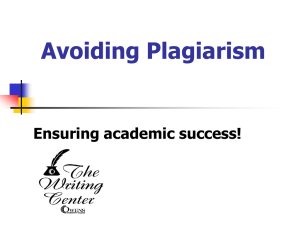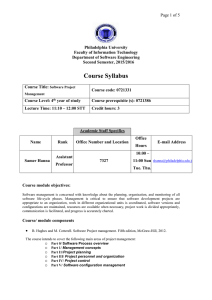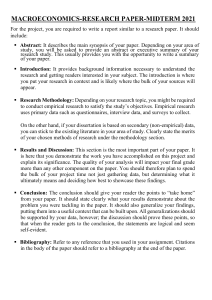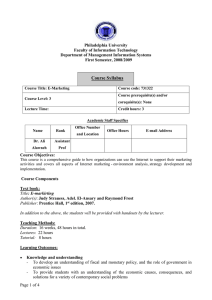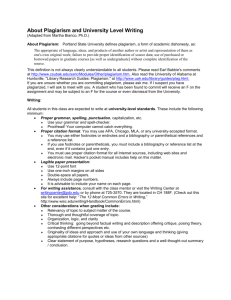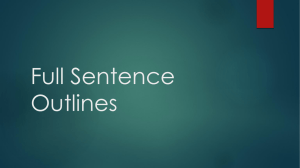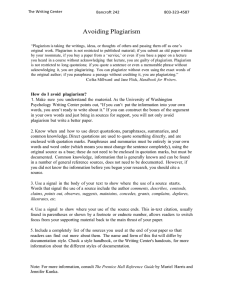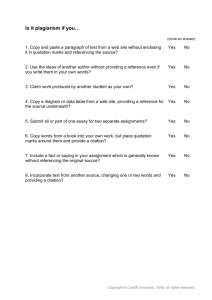Exactly what is plagiarism?
advertisement
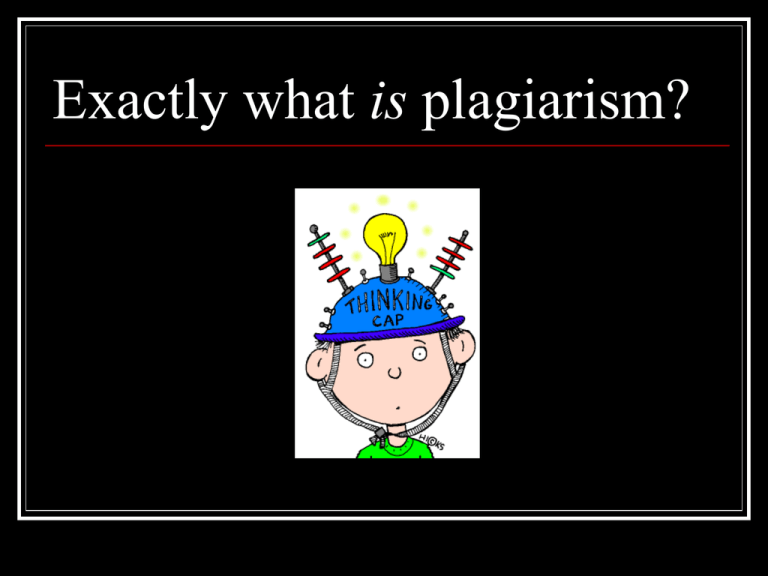
Exactly what is plagiarism? What is Plagiarism? Turning in someone else’s paper with your name on it—this includes: buying a paper on-line, copying a free paper you found on-line, passing off a paper written by someone else as your own. Cutting and pasting information from several sources to make up your paper using the words or ideas you found in another source…. without giving credit to that source by using Footnotes and/or a bibliography Not putting a direct quotation in quotation marks: “Let us therefore brace ourselves to our duties, and so bear ourselves that if the British Empire and Commonwealth last for a thousand years, men will still say, “This was their finest hour…” --Sir Winston Churchill June 18, 1940 in a speech delivered to the House of Commons Not giving the correct information about the source of a quotation Plagiarism is allowing your essay, assignment or test answers to be copied by another student. Plagiarism is also, Copying such a large amount of ideas or words from a source that it makes up the majority of your paper. How can I avoid plagiarism? 1. 2. 3. Always make sure you cite your sources! Use bibliographies and footnotes, even if you put the ideas in your own words. Make sure you use quotes properly-- use quotation marks and citations. Use ideas from sources to help build your paper not to completely create it! Avoiding plagiarism is hard work, I’m afraid! You need to read your sources carefully. If something is worth quoting, then do it. Paraphrasing is when you figure out the meaning of a passage and put it in your own words….simply rewording it won’t do! I know it’s tough but nobody ever said writing is easy work! When in doubt? Ask a teacher or librarian for It may be difficult for you to tell if you are plagiarizing or not. Having someone else look at your work may help you avoid problems!!! Help is on the way!! Created by Janet L. Phares Paddy’O Studios, Ltd. Staunton, Virginia 2007
